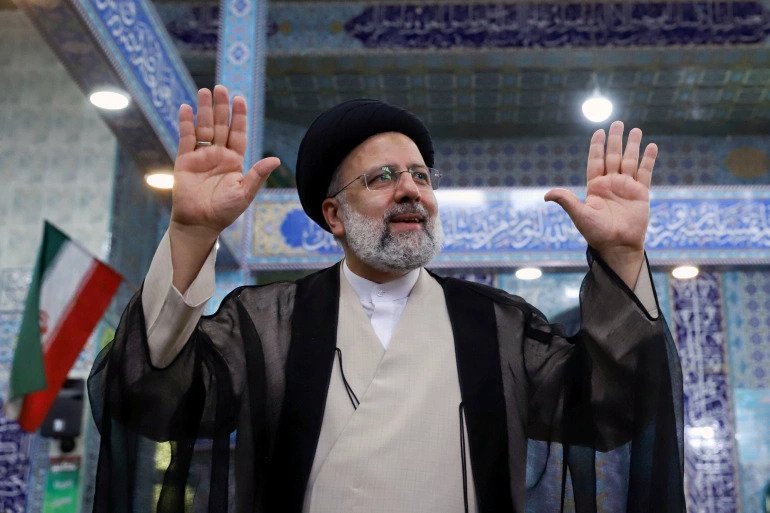Hardliner Ebrahim Raisi has comfortably won the Iranian election by gaining over 60% of the votes cast, amid a low turnout and boycotts. Outgoing president Hassan Rouhani couldn’t run for a 3rd term as per Iran’s constitution but congratulated Raisi on his win despite the change in direction Raisi is expected to take the country in.
Rouhani will be remembered mostly for the nuclear deal that saw Iran give up the right to self-defence in exchange for the lifting of crippling sanctions from the West. Of the four candidates on the final ballot, Abdolnaser Hemmati was the only one who placed the reestablishment of the deal, which US President Trump tore up in 2018, as the central policy.
This isn’t to say Raisi has sworn off the negotiating table, but his focus has instead been on what Iranians can do at home. He’s placed particular emphasis on domestic industrial development. Making deals with Western oppressors is less appealing as a long-term solution when their increasing instability and erraticism means murderous sanctions could come crashing back down at any minute.
Former Trump favourite John Bolton has described the EU’s sanctions on Iran as ‘brutal’ but the US leads the charge. The economic pressure caused has plunged millions of Iranians into poverty and greatly exacerbated the effects of Coronavirus as people couldn’t afford to socially distance themselves. Almost all vaccines administered have come from China and Russia, whilst Cuba is helping efforts to produce a homegrown vaccine.
The argument for these sanctions is that they pressure Iran to give up nuclear weapons. Yet the Islamic Republic of Iran has never started a war against another country. It led the battle against ISIS and has seen its Iraqi and Afghan neighbours slaughtered by a US-led coalition. 16 million more people are living in Iran than the UK, yet the idea they have even one of these deterrents is presented as dangerous in comparison to the supposedly safer 215 nuclear warheads that Boris Johnson can wield.
The turnout in Friday’s voting was low, coming in at around 50%, but Raisi won comfortably. The measly 2.4 million votes for Hemmati shows that most Iranians are losing interest in dancing for murderous Western regimes though and those who chose to cast their ballot announced their desire for a different route.
With Iran’s trade routes to its East proving ever more prosperous, these pressures to dissipate Iran’s right to self-determination are weakening. The skewed negotiating table that NATO heads are looking decreasingly appealing to the voters of Iran.
The Tudeh Party of Iran denounced and boycotted the elections in a statement issued prior to the poll, “The Central Committee of the Tudeh Party of Iran boycotts the 18th June 2021 presidential elections based on its core policy of defending peace, democratic rights and freedoms, and social justice, and in the context of the struggle to realise the rightful demands of the working-class.”
“… the expectation of holding “free elections” under the current despotic regime, as the experience of recent years has shown, is hollow and wholly inconsistent with the nature and function of this regime. In the current situation in Iran, saying “NO” to tyranny is only possible by refusing to participate in the current presidential campaign charade.”
“The only way to rid the homeland of the devastation wrought by the socio-economic, cultural, and foreign policies of this regime is to establish the people’s rule; a rule that relies on the democratic mandate of the people, the preservation of territorial integrity, and the protection of the national interests and rights of every citizen of Iran.”
Mally Kakembo, is a member of the YCL’s Wales branch



